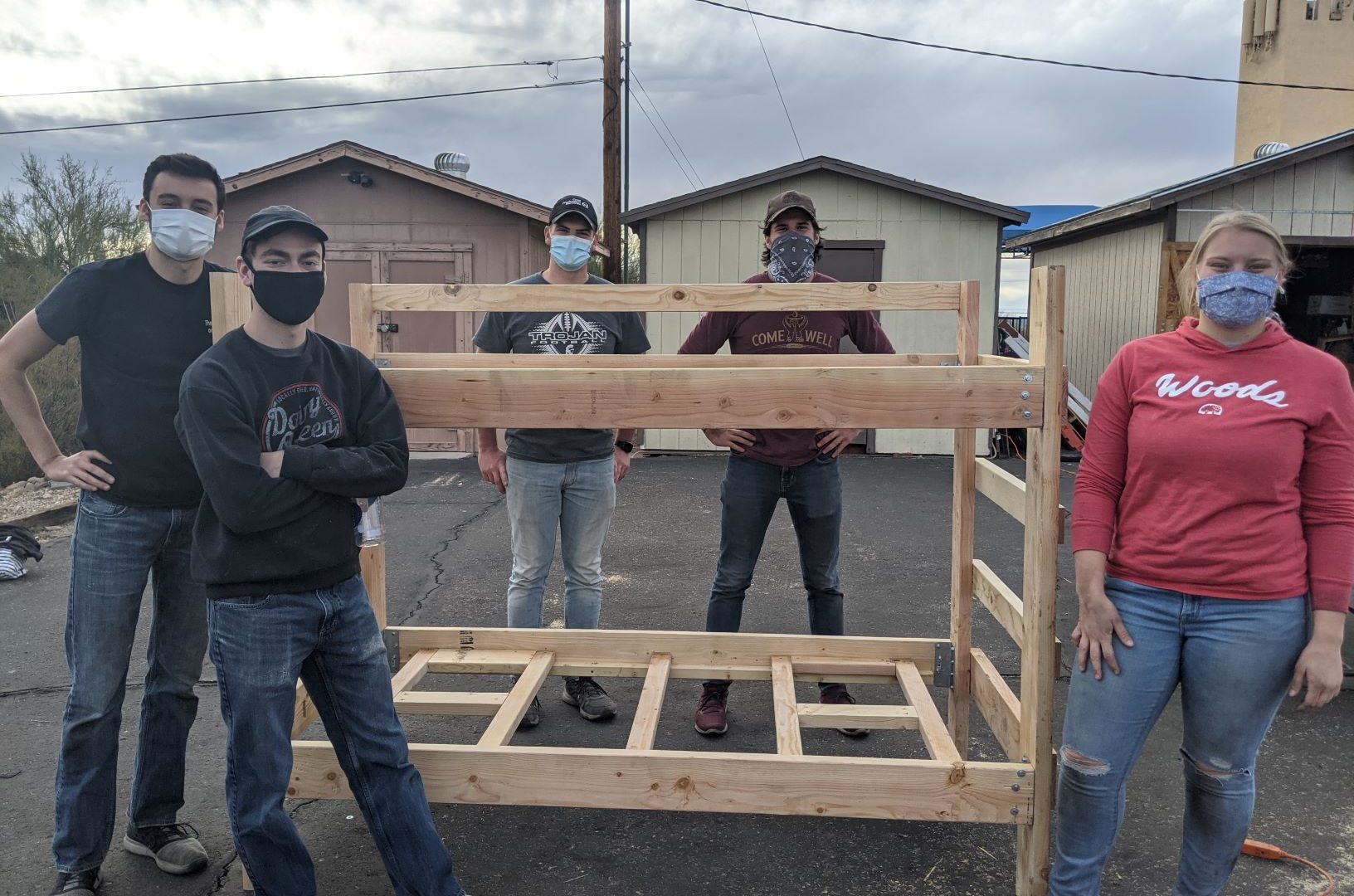By Mike Rhoades
Prior to the COVID-19 pandemic, it was estimated that upwards of 2.4 million people from the United States went on a short-term mission trip each year. Say what you will about short-term missions, that number represents a huge number of people who are actively sharing Christ’s love throughout the world and stretching their faith.
A large number of those going to serve on mission trips fall into the youth and young adult category. They are young people, during some of the most formative years of their life, who are pursuing the deeper meaning and calling of faith in Jesus.
Following the global shutdown in 2020, only a fraction of those people have been able to go and serve on the mission field in the last year. So, the question we begin with is:
“What is the impact on these students who haven’t gotten to experience short-term missions this year?”
We believe wholeheartedly that healthy short-term missions begin with a commitment to place the ministry of the local church above our own desires. Through a practice of Genuine Partnership, we aim to build-up and encourage the local church in order to develop Long-Term Relationships and support Sustainable Ministry that will impact the community long after the mission team is gone. It’s about them and not about us.
That being said, we know that this is not a one-sided transaction, and the experience of a short-term mission trip can be deeply formative for a teenager. As our world starts to open back up and teams can safely begin serving once again, we are excited to mobilize again to support and encourage our local partners, likewise reinvigorating those who go to serve, as well.
As we get ready, the following are lessons we are excited to see our teams learning as they serve alongside the local church.
Cultural Empathy
Comfort, or should I say the lack of comfort, one feels with their immediate environment can be a powerful catalyst for change. Oftentimes, when we spend everyday living in our own little bubble, it becomes really hard to break out of predictable patterns, beliefs, and actions. Experts call this “perceptual blindness,” and it refers to a person’s inability to pick up on things around them, not because they cannot do so, but because their attention is consumed by other things.
A healthy missional experience breaks the students’ normal cultural paradigms and creates opportunities for them to perceive and learn from this strange new environment. The result creates pathways for greater empathy, an expanded worldview, and greater respect for the diversity of the human experience.
Others-Centeredness
One of the biggest challenges for us as human beings, especially in our teenage years, is learning how to get beyond ourselves and learn to sacrificially serve those around us. We are naturally wired to pay attention to how we feel, the things we desire, and to constantly pursue things in life that we believe will meet those needs. It’s part of our sin nature and something that we must wrestle with to varying degrees throughout our lives.
However, learning to develop that awareness and that practice as a teenager can be incredibly formative, making that tension much easier as an adult. The beauty and the power of a mission trip is that it is completely not about the participants or their needs. It’s an experience hardwired to force us to forgo our own desires to serve others in humility and with a genuine heart.
The BIGNESS of God
Sometimes it’s hard to wrap our minds around the bigness of God. We talk poetically about it, write songs about it, but ultimately we are still confined by our own context. We cherish Sunday mornings with the mission team because we intentionally take that time to worship alongside the people we are there to serve. Teams are most often serving in communities and cultures different from their own, and therefore are entering into the way that others engage with and worship God.
From learning different ways of relating to and identifying God to worshipping Him in other styles and languages, it doesn’t take long for the boundaries of who someone’s concept of God has been to get stretched and expanded. These experiences are special, and they allow us to experience the diversity of God’s Church while at the same time recognizing that He is the same God all over the world.
Even more, it peels back the curtain on what God is already doing. Students are forced to recognize that they are not bringing Jesus to the community, but they are joining in the work that God is actively doing in communities all over the world.
As we are ready and eager to mobilize again, we are excited to see the impact of these lessons on not only the youth who serve but their home communities, as well, as they come back with a renewed fire to share the love of Christ with those around them.
And whether it’s on a mission trip or within your own community this year, we encourage us all to get out and serve, to expand our circles, challenge our own assumptions about God, and embrace what He may have waiting for us to learn from those He places in front of us to serve.
Mike Rhoades is director of marketing for Praying Pelican Missions, which is connecting the local church on a global level through short-term mission trips, www.prayingpelicanmissions.org.







